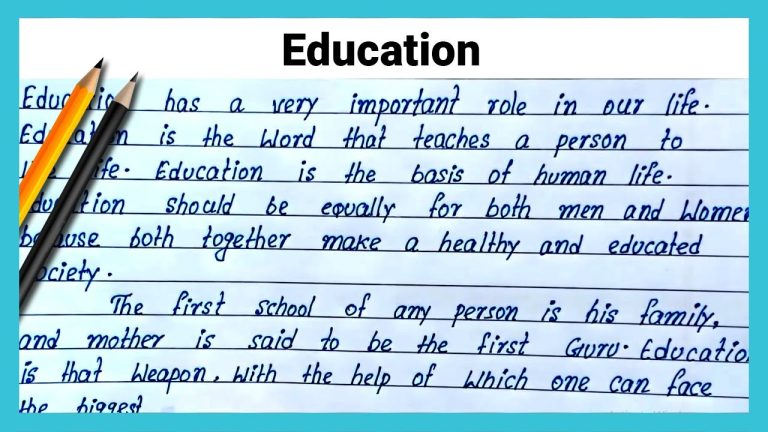

Hacking the Case Interview

If you’re interviewing for a consulting role at IBM, particularly for the IBM Global Business Services group, expect to be given a case interview or case study interview during your interview process.
IBM consulting interviews consist of case interviews and behavioral or fit interview questions. There are typically two rounds of interviews that candidates must nail before receiving an IBM consulting job offer. The interview process may vary depending on your tenure and the office that you are interviewing for.
- First round : One 30-minute phone screen with a recruiter. The focus of the interview will be on resume questions and behavioral or fit interview questions.
- Second round : Three 30- to 45-minute interviews. Two of these interviews will be focused on behavioral or fit interview questions and one will be focused on a case interview.
If you have an upcoming interview with IBM consulting or IBM Global Business Services, we have you covered. In this article, we’ll cover:
- The 7 steps to solve any IBM consulting case interview
- IBM case interview examples
- IBM case interview tips
- The 10 most common IBM behavioral or fit interview questions
- Recommended IBM case interview resources
If you’re looking for a step-by-step shortcut to learn case interviews quickly, enroll in our case interview course . These insider strategies from a former Bain interviewer helped 30,000+ land consulting offers while saving hundreds of hours of prep time.
The 7 Steps to Solve Any IBM Consulting Case Interview
Acing your case interviews or case study interviews is the single most important factor that determines whether or not you will receive a consulting job offer from IBM.
A case interview is a special type of interview that nearly every single consulting firm uses. IBM case interviews simulate the consulting job by placing you in a hypothetical business situation in which you are asked to solve a business problem.
IBM case interviews, also known as case study interviews, are all candidate-led. You will be in the driver’s seat of the case interview and will be expected to ask the right questions, probe for data, and propose each next step to solve the case.
Follow these seven steps to solve any IBM consulting or IBM Global Business Services case interview.
1. Understand the case background information
The case interview will start with the interviewer explaining the case background information. Make sure that you are taking notes while the interviewer is speaking. You’ll want to focus specifically on understanding the context, the company, and the objective of the case.
The most important part of the case interview is to make sure you understand the business issue and objective of the case. Addressing the wrong business problem is the quickest way to fail a case interview.
2. Ask clarifying questions
Once the interviewer has finished giving you the case information, you’ll have an opportunity to ask questions.
While you can ask any question that you want, try to prioritize asking questions that help you better understand the situation and problem. You want to avoid asking questions that are too specific or not relevant to understanding the case situation.
Most candidates ask between one to three questions. You’ll be able to ask more questions later in the case interview if you need to.
3. Summarize the information and verify the objective
Once you have finished asking your immediate questions, summarize all of the major case information and verify that you understand the objective correctly.
In this step, many candidates make the mistake of stating every fact of the case verbatim. Instead, you should summarize the case concisely and clearly in your own words. This demonstrates that you can synthesize information effectively.
4. Develop a framework
The next step is to structure a framework to help guide you through the case.
A case interview framework is a tool that helps you structure and break down a complex problem into simpler, smaller components. Think of a framework as brainstorming different ideas and organizing them into different categories.
To develop a framework, ask yourself what are the three to four major questions that you need to answer in order to make a confident recommendation?
Many candidates make the mistake of using memorized frameworks and applying them to their case interviews. Interviewers can tell when you are using a memorized framework because not all of the elements of the framework will be relevant to the case.
Using a memorized framework reflects poorly on your capabilities because it shows that you cannot think critically for yourself. Therefore, practice creating unique and tailored frameworks for each case that you get.
For a complete guide on how to create tailored and unique frameworks for each case, check out our article on case interview frameworks .
When creating your framework, it is acceptable to ask the interviewer for a few minutes of silence to collect your thoughts. Afterwards, present your framework to the interviewer.
5. Kick off the case
Once you have finished presenting your framework, the interviewer may agree with your approach or may provide some feedback or suggestions. Afterwards, it is time to start solving the case.
How the case investigation will start depends on whether your case is a candidate-led or interviewer-led case. Most cases are candidate-led.
Candidate-led case : In this type of case, you will be expected to drive the direction of the case. You will be suggesting what areas to explore, what analyses to do, and what the next step should be. So, pick an area of your framework to start analyzing. There is no right or wrong area to pick as long as it is relevant to solving the case.
Interviewer-led case : In this type of case, the interviewer will be leading the direction of the case. They will be asking you specific questions that you will answer. After each question, they’ll direct you to the next question. For interviewer-led cases, the interviewer will typically kick off the case by asking you a question after you finish presenting your framework.
6. Answer quantitative and qualitative questions
The majority of the interview will be spent answering a mix of quantitative and qualitative questions.
Quantitative questions may have you estimate the size of a particular market, perform some calculations to determine profitability, or interpret various charts and graphs.
When solving quantitative problems, make sure that you walk the interviewer through your approach before you begin doing any math. When performing calculations, make sure to talk through your steps out loud so that it is easy for the interviewer to follow your work.
Qualitative questions may ask you to brainstorm potential ideas or ask for your judgment on an open-ended business question. When answering these questions, try to structure your answer as much as possible.
After answering each question, make sure that you take your answer and connect it back to the overall case objective. How does your answer help you solve the case? How does your answer impact your potential recommendation?
7. Deliver a recommendation
At the end of the case, the interviewer will ask you to prepare an overall recommendation. It is acceptable to ask the interviewer for a minute to look through your notes before you give your recommendation.
Based on the quantitative and qualitative questions you have answered, what recommendation do they collectively support?
Structure your recommendation in the following way:
- State your recommendation
- Provide the two to three reasons that support your recommendation
- Propose next steps that you would take if you had more time
After you deliver your recommendation, the interviewer will conclude the case interview. If the case interview was based on a real life project, the interviewer may explain what actually happened in the case.
Don’t worry if your recommendation does not match what actually happened during the project. For case interviews, you are not assessed on your answer, but on your process.
IBM Consulting Case Interview Examples
Below, we’ve compiled case interviews that IBM Global Business Services has given to candidates in previous interviews. These cases should give you a good idea of the types of business problems you may be asked to solve on your interview day.
For more practice, check out our article on 23 MBA consulting casebooks with 700+ free practice cases .
Example #1: Increasing profitability of a networking equipment company
Your client is an American technology company that develops, manufactures and sells high speed networking hardware and telecommunications equipment. The CEO is not satisfied with the company’s current profitability and wants you to help them determine how to improve this.
Example #2: Acquiring a kitchen appliance manufacturer
An American manufacturer of kitchen appliances and kitchen supplies has a strong brand and has historically spent significant advertising and marketing dollars to maintain their brand. Growth has been steady, driven by product line extensions and key acquisitions of specialty item producers.
A private equity firm is considering purchasing this company. What factors would you look into to develop a recommendation on whether this acquisition should be made?
Example #3: Opening new IT service centers
Our client is a multinational software company that makes enterprise software to manage business operations and customer relations. The company has four geographic regions: North America, Latin America, Asia Pacific, and Europe.
Recently, management wants to expand the IT services department by 200% over the next 3-5 years. They are looking to open up new service centers all over the world. How would you decide where to set up these new service centers?
Example #4: Cutting costs of road construction
A large civil engineering and road construction company has vast experiences in all types of road construction and specializes in highways and local roads paving. They have recently won a contract through a bidding process for constructing a state highway road. The price awarded at the time of bidding was $600 million.
The client realized that their total cost of the project is forecasted to be $650 million. Your consulting team has been hired to help the client make the project profitable. Where can they cut costs?
Example #5: Divestiture of personal computer division
A large manufacturer of computer hardware, software, and infrastructure services is considering selling off their personal computer division to a competitor. Should our client divest their personal computer division?
Example #6: Growing market leadership position
Your client is a large manufacturer of hard drives and data storage devices. Last year, the company had over $10 billion in revenue. While your client enjoyed rapid growth over the past few years, management is concerned about the company’s ability to maintain its market leadership position in a highly competitive market.
What should your client do to continue to grow and maintain its leading market position?
Example #7: Brand turnaround strategy
A large multinational diversified foods and consumer products company operates in over 80 countries around the world. You have been brought in as a consultant because this company has experienced stagnant market share over the past few years.
The client is losing its innovative reputation since they have been frequently adding product line extensions rather than adding new products. What are the drivers of this trend? What would you do to turn around this trend?
Example #8: Electronic home security business market entry
Our client is a multinational telecommunications company that is the largest provider of mobile telephony and fixed telephony in the United States. Recently, management of this company has become interested in diversifying into other business areas outside of telecommunications.
They are considering entering the market for electronic home security systems, such as perimeter security systems or intrusion detection systems for residential and commercial properties. Should they enter this market?
IBM Consulting Case Interview Tips
Below are six of our best tips for preparing for an IBM consulting or IBM Global Business Services case interview.
Tip #1: Start preparing early
Mastering case interviews takes time. Many of the skills and techniques needed to solve case interviews can’t be learned in just a day or in a week. Ideally, start preparing for your case interviews at least a month or two in advance to give yourself enough time to learn and practice.
Tip #2: Practice with a case partner
Practicing case interviews with a partner is the best way to simulate a real case interview. There are many aspects of case interviews that you won’t be able to work on if you are doing mock cases by yourself. Casing with a partner lets you practice your communication, presentation, and collaboration skills.
Tip #3: Keep a list of feedback from each case
You should keep a journal or log of all of the different pieces of feedback you get from your case interview partner during practice. This way, you’ll be able to identify trends and prioritize what improvement areas to focus on. For example, if you consistently receive feedback in each practice case that you need to structure your answers, that should be your top area to focus on.
Tip #4: Focus on improving one thing at a time
After doing some practice case interviews, you’ll likely have a long list of feedback and improvement areas. Try to focus on improving one thing at a time. Before each practice case, decide on the one thing that you really want to focus on and nail. This will be much more effective than trying to improve everything at once.
Tip #5: Use a hypothesis-driven approach
During the case interview, you should have a hypothesis of what the answer to the case is. A hypothesis is simply an educated guess based on the knowledge that you have. As you analyze data and gather more information, make sure to be constantly changing and refining your hypothesis.
There are two benefits to using a hypothesis to drive the direction of the case. One, it ensures that you are focusing on relevant areas that will help you solve or answer the case. Two, by the time the interviewer asks you for a recommendation, you will already have a refined hypothesis on what the answer or solution to the case should be.
Tip #6: Be 80/20
You have limited time during a case interview to solve the case. Therefore, you won’t be able to cover all of the different areas in your framework and get answers to every single question that you have. Therefore, focus on the most important issues and use the 80/20 principle.
The 80/20 principle states that 80% of the outcome comes from 20% of your effort. During a case interview, focus on the most important questions or areas that will have the biggest impact or effect on developing your answer or recommendation.
The 10 Most Common IBM Behavioral or Fit Interview Questions
In addition to case interviews, you will likely be asked a few behavioral or fit interview questions. There are ten questions that are most commonly asked.
1. Why are you interested in working at IBM consulting or IBM Global Business Services?
How to answer: Have at least three reasons why you’re interested in working at IBM. You could mention the exciting opportunities to work with high-end technology clients such as Apple, Amazon, or Microsoft. You can also talk about IBM’s expertise in cognitive data analytics, cloud technology, and mobile app development. Finally, you can speak to IBM’s mentorship model and flexible work environment.
2. Why do you want to work in consulting?
How to answer: Again, have three reasons why you’re interested in consulting. You could mention the fast career growth opportunity, the opportunity to develop soft and hard skills, or the level of impact that you can make by working with large companies on their most challenging issues.
3. Walk me through your resume
How to answer: Provide a concise summary of your work experience, starting with the most recent. Focus on emphasizing your most impressive and unique accomplishments. At the end, tie your experiences to why you are interested in consulting.
4. What is your proudest achievement?
How to answer: Choose your most impressive, unique, or memorable accomplishment. Structure your answer by providing information on the situation, the task, the actions you took, and the results of your work.
5. What is something that you are proud of that is not on your resume?
How to answer: This is a great opportunity to highlight an accomplishment that is not related to your professional work experience. Perhaps there is a non-profit that you volunteer at, a side project or business that you work on, or a hobby that you have won awards or recognition for. Choose something that is impressive and interesting.
6. Tell me about a time when you led a team.
How to answer: If possible, choose a time when you directly managed a person or a team. For this question and the following questions, make sure that you structure your answer. Structure your answer by providing information on the situation, the task, the actions you took, and the results of your work. This is known as the STAR method and is commonly used to answer behavioral or fit interview questions.
7. Give an example of a time when you faced conflict or a disagreement.
How to answer: When answering this question, focus on emphasizing the steps you took to resolve the conflict or disagreement. Speak to the interpersonal skills you had to use in order to mediate the situation. Interviewers want to know that you are a great mediator and that you can handle conflict in a constructive way.
8. Tell me about a time when you had to persuade someone.
How to answer: Choose a time when you were able to change someone’s mind. Focus on emphasizing the steps that you took to persuade that person and what impact and results this had. Interviewers want to know that you are a great communicator and a good people person.
9. Describe a time when you failed.
How to answer: Choose a time when you failed to meet a deadline or did not meet expectations. Focus on emphasizing what you learned from the experience and how you used that experience to deliver even better results in the next opportunity that you got. Interviewers want to see that you don’t get discouraged from failure and that you treat those experiences as learning opportunities.
10. What questions do you have for me?
How to answer: This is a great opportunity to get to know the interviewer on a more personal level. Ask them questions about their experience in consulting or their career. Express genuine interest in what they have to show and ask follow-up questions. The more you can get the interviewer talking about themself, the more likely they will have a positive impression of you.
For more help, check out our complete guide on consulting behavioral interview questions .
Recommended IBM Interview Resources
Here are the resources we recommend to land an IBM consulting offer:
For help landing consulting interviews
- Resume Review & Editing : Transform your resume into one that will get you multiple consulting interviews
For help passing case interviews
- Comprehensive Case Interview Course (our #1 recommendation): The only resource you need. Whether you have no business background, rusty math skills, or are short on time, this step-by-step course will transform you into a top 1% caser that lands multiple consulting offers.
- Case Interview Coaching : Personalized, one-on-one coaching with a former Bain interviewer.
- Hacking the Case Interview Book (available on Amazon): Perfect for beginners that are short on time. Transform yourself from a stressed-out case interview newbie to a confident intermediate in under a week. Some readers finish this book in a day and can already tackle tough cases.
- The Ultimate Case Interview Workbook (available on Amazon): Perfect for intermediates struggling with frameworks, case math, or generating business insights. No need to find a case partner – these drills, practice problems, and full-length cases can all be done by yourself.
For help passing consulting behavioral & fit interviews
- Behavioral & Fit Interview Course : Be prepared for 98% of behavioral and fit questions in just a few hours. We'll teach you exactly how to draft answers that will impress your interviewer.
Land Multiple Consulting Offers
Complete, step-by-step case interview course. 30,000+ happy customers.
- United States
The IBM Global Business Services Entry Level Consultant Interview Process
You're motivated to earn this job and you're ready to compete, but are you ready for the interview? Here's what you can expect and how to prepare.
Follow the steps
A. Know the type of interviews for the position you're seeking
Tips: bring several copies of your resume, pen and paper, b. understand how the interviews differ, 1. case study (30 minutes), 2. behavioral (30 minutes), 3. portfolio (15 minutes), c. remember what makes you unique, d. be aware of what happens next, visit ibm entry level consultants to learn more..
support your career
get the interview & get the job
Cracking the IBM Consultant Interview: The Top 12 Questions and Answers You Need to Know
Earning a consulting role at IBM is a coveted opportunity to kickstart your career with an industry leader However, IBM’s rigorous recruitment process means you must be meticulously prepared for the interview
In this comprehensive guide I’ll provide expert tips and strategies to help you master the most common IBM consultant interview questions and land your dream job.
Let’s start by examining the typical IBM hiring process for consultants:
Overview of IBM’s Consulting Interview Process
Online Application – Submit your resume and complete an application form with questions about your background and skills.
Recruiter Screen – If selected, you’ll have a 30 minute phone interview with an IBM recruiter assessing your communication abilities.
Interview Day: Those who are invited to interview will have a full day of multiple interviews that happen one after the other. Usually, these interviews will include:
One 30 minute case study interview analyzing a business problem
Two 30 minute behavioral interviews focused on your past experiences
One 30 minute technical interview (for some roles) testing your hard skills
Offer – IBM extends offers to top candidates within 2 weeks. The process moves quickly so prep early!
Now let’s dive into the most frequently asked IBM case study, behavioral and technical interview questions:
The Top 12 IBM Consultant Interview Questions and Answers
Ibm case study interview questions.
Walk me through how you would design a new smartphone app for our client.
This open-ended case assesses your logic and problem-solving process from start to finish.
How to Answer
Seek clarifying details about the client’s business needs and goals for the app.
Verbally map out your step-by-step approach from market research, requirements gathering, design, development, testing, launch, etc.
Discuss tradeoffs to consider at each stage. Explain your thinking.
Ask questions to validate your logic and fill in gaps.
Provide examples to back up your recommendations.
Our client needs to improve their supply chain efficiency. How would you approach this?
IBM wants strategic thinkers who can analyze complex business problems.
Clarify if they want to increase speed, reduce costs or both. Ask follow-ups to understand context.
Map out an approach identifying areas to audit the current processes, tools, and data flow.
Discuss potential solutions like automation, improved forecasting, or supplier integration. Compare pros/cons.
Quantify anticipated impacts using metrics like lead time or costs.
Emphasize collaboration with client stakeholders and iteration based on findings.
IBM Behavioral Interview Questions
Tell me about a time you went above and beyond for a client.
Expect behavioral questions assessing your customer focus, service mentality and initiative.
Set up the scenario briefly but focus more on your actions.
Explain how you identified an unmet client need and took extra steps to address it.
Share quantifiable results and the client’s reaction when possible to showcase impact.
Discuss how it made you feel to exceed the client’s expectations.
Convey your passion for bringing value to clients.
Describe a time you successfully led a challenging project.
Leadership skills are highly valued at IBM. Demonstrate abilities to influence and drive results.
Introduce the challenging project goals and team dynamics involved.
Discuss how you brought focus to the vision and inspired the team through difficult stretches.
Share examples like removing roadblocks, providing coaching, or securing resources the team needed.
Quantify the end results you collectively achieved.
Take care not to diminish team contributions but spotlight moments of your leadership.
Tell me about a time you made a mistake at work. What happened and how did you handle it?
IBM wants candidates who take ownership of mistakes and can reflect on lessons learned.
Pick an example where the stakes were not too high and focus on your response.
Avoid playing the blame game. Take accountability for your own misstep or lapse in judgement.
Discuss how you quickly took corrective action, apologized if appropriate, and implemented changes to prevent recurrence.
Share what you learned from the experience about yourself or the industry.
Keep the tone positive, conveying that mistakes, while unfortunate, contain learnings.
IBM Consultant Technical Interview Questions
Compare and contrast Agile and Waterfall methodologies. When would you use each?
Testing your knowledge of foundational software development lifecycles is common, especially for tech consulting roles.
Provide an overview of both including textbook differences in their workflows and focus.
Highlight when you would leverage Agile vs. Waterfall by assessing factors like project complexity, requirements risk, team culture, etc.
Use examples of past projects where you successfully utilized either methodology and why it was fitting.
Discuss hybrid approaches that blend aspects of Agile and Waterfall.
Convey you match methodology to needs rather than dogmatically pushing one approach.
Explain how you would build a simple web application.
Understanding core web development concepts is important for consultants implementing tech solutions.
Walk through setting up the backend environment and choice of language/frameworks – explain your rationale.
Map out setting up the front-end UI components and connecting to the backend via API calls.
Discuss protocols like REST, design patterns like MVC, and architectural considerations.
Speak to the flow of data and sessions.
Avoid too much granular coding detail but rather focus on big picture concepts.
How would you explain the Internet of Things (IoT) concept to a client new to the topic?
IBM consultants must digest complex tech topics and explain them clearly to clients.
Provide a simple, concrete explanation of IoT using everyday examples like smart home devices.
Use metaphors or visuals to explain the concept of physical devices connected and communicating over the internet.
Discuss common IoT use cases in business and consumer contexts.
Outline capabilities IoT enables like real-time control, data collection, automation.
Check for client understanding and rephrase your explanation if needed.
With preparation focused on these high-probability IBM consultant interview questions, you can highlight your strategic thinking, technical abilities, leadership, and client focus. Use the STAR method to construct compelling stories and quantitative data to back up your examples. With practice and confidence, you will be ready to impress your interviewers and receive an offer to join the elite ranks at IBM Consulting.

IBM Consulting Case Interview Tips
Here are six of the best things you can do to get ready for an interview with IBM Consulting or IBM Global Business Services
Tip #1: Start preparing early
Mastering case interviews takes time. You can’t learn all the skills and tricks you need to do well in case interviews in one day or one week. Start getting ready for your case interviews at least one or two months ahead of time to give yourself time to learn and practice.
Tip #2: Practice with a case partner
Practicing case interviews with a partner is the best way to simulate a real case interview. If you do mock cases by yourself, you won’t be able to work on many things that are important for case interviews. Casing with a partner lets you practice your communication, presentation, and collaboration skills.
Tip #3: Keep a list of feedback from each case
While you’re practicing, you should write down all the different things your case interview partner tells you. This way, you’ll be able to identify trends and prioritize what improvement areas to focus on. For instance, if you keep getting feedback in each practice case that your answers need to be more structured, that should be the first thing you work on.
Tip #4: Focus on improving one thing at a time
After doing some practice case interviews, you’ll likely have a long list of feedback and improvement areas. Try to focus on improving one thing at a time. Before each practice case, decide on the one thing that you really want to focus on and nail. This will be much more effective than trying to improve everything at once.
Tip #5: Use a hypothesis-driven approach
During the case interview, you should have a hypothesis of what the answer to the case is. A hypothesis is simply an educated guess based on the knowledge that you have. As you analyze data and gather more information, make sure to be constantly changing and refining your hypothesis.
There are two benefits to using a hypothesis to drive the direction of the case. One, it makes sure you’re focusing on the right things that will help you solve or answer the case. Two, you will already have a good idea of what the answer or solution to the case should be by the time the interviewer asks you for your opinion.
Tip #6: Be 80/20
You have limited time during a case interview to solve the case. Because of this, you won’t be able to cover all the different parts of your framework and get answers to all of your questions. Therefore, focus on the most important issues and use the 80/20 principle.
The 80/20 principle states that 80% of the outcome comes from 20% of your effort. Focus on the most important questions or areas that will have the most effect on how you come up with your answer or suggestion during a case interview.
IBM Consulting Case Interview Examples
Below, we’ve compiled case interviews that IBM Global Business Services has given to candidates in previous interviews. They should help you understand the kinds of business issues you might be asked to handle at your interview.
For more practice, check out our article on 23 MBA consulting casebooks with 700+ free practice cases .
Example #1: Increasing profitability of a networking equipment company
American tech company your client is is in charge of creating, making, and selling high-speed networking hardware and phone systems. The CEO is unhappy with how profitable the business is right now and wants you to help them figure out how to make it better.
Example #2: Acquiring a kitchen appliance manufacturer
An American company that makes kitchen appliances and supplies for the kitchen has a strong brand and has spent a lot of money on marketing and advertising to keep it strong. Growth has been steady, driven by product line extensions and key acquisitions of specialty item producers.
A private equity firm is considering purchasing this company. What factors would you look into to develop a recommendation on whether this acquisition should be made?.
Example #3: Opening new IT service centers
Our client is a multinational software company that makes enterprise software to manage business operations and customer relations. The company has four geographic regions: North America, Latin America, Asia Pacific, and Europe.
Recently, management wants to expand the IT services department by 200% over the next 3-5 years. They are looking to open up new service centers all over the world. How would you decide where to set up these new service centers?.
Example #4: Cutting costs of road construction
A big civil engineering and road construction company has a lot of experience building all kinds of roads, but they do a lot of paving for highways and local roads. They have recently won a contract through a bidding process for constructing a state highway road. The price awarded at the time of bidding was $600 million.
The client realized that their total cost of the project is forecasted to be $650 million. Your consulting team has been hired to help the client make the project profitable. Where can they cut costs?.
Example #5: Divestiture of personal computer division
A big company that makes computer hardware, software, and infrastructure services might sell their personal computer business to a rival. Should our client divest their personal computer division?.
Example #6: Growing market leadership position
Your client is a large manufacturer of hard drives and data storage devices. Last year, the company had over $10 billion in revenue. Your client’s business has grown quickly over the past few years, but management is worried that the company won’t be able to stay at the top of a very competitive market.
What should your client do to continue to grow and maintain its leading market position?
Example #7: Brand turnaround strategy
A large multinational diversified foods and consumer products company operates in over 80 countries around the world. This business has hired you as a consultant because its market share has stayed the same for a few years.
The client is losing its reputation for being innovative because they keep adding new products to existing lines instead of making new ones. What are the drivers of this trend? What would you do to turn around this trend?.
Example #8: Electronic home security business market entry
Our client is a multinational phone company that offers phone service to both landlines and cell phones in the United States. Recently, management of this company has become interested in diversifying into other business areas outside of telecommunications.
They are thinking about getting into the market for electronic home security systems, like intrusion detection systems and perimeter security systems for homes and businesses. Should they enter this market?.
IBM Interview Questions and TOP-SCORING ANSWERS! (IBM Job Interview TIPS!)
What does a consultant do at IBM?
Is IBM interview difficult?
Why are you interested in IBM Consulting?
What should I expect during a consulting interview at IBM?
If you’re interviewing for a consulting role at IBM, particularly for the IBM Global Business Services group, expect to be given a case interview or case study interview during your interview process. IBM consulting interviews consist of case interviews and behavioral or fit interview questions.
Will I get a consulting job offer from IBM?
Acing your case interviews or case study interviews is the single most important factor that determines whether or not you will receive a consulting job offer from IBM. A case interview is a special type of interview that nearly every single consulting firm uses.
What is the IBM Consulting interview process?
IBM consulting interviews consist of case interviews and behavioral or fit interview questions. There are typically two rounds of interviews that candidates must nail before receiving an IBM consulting job offer. The interview process may vary depending on your tenure and the office that you are interviewing for.
How do I prepare for an interview at IBM?
Practice Interview Questions The interview process at IBM consists of several rounds and typically includes common interview questions. To prepare, it is recommended to practice answering these questions with the help of a friend, family member, or mentor to build confidence and improve responses.
Related posts:
- 13 Common Phone Interview Questions (and Answers!)
- Top 70 Core Java Interview Questions and Answers 2024
- amazon interview questions
- The 27 Best Exit Interview Questions To Improve Your Business
- Top 100 Python Interview Questions and Answers 2024
- 10+ Situational Interview Questions & Answers [Complete List]
- 11 Questions You’ll Be Asked at a Teaching Interview
- Top 50 Spring Boot Interview Questions and Answers in 2024
Related Posts
The top 20 xhtml interview questions for web developers in 2023, preparing for a udacity interview: commonly asked questions and how to answer them, leave a reply cancel reply.
Your email address will not be published. Required fields are marked *
Save my name, email, and website in this browser for the next time I comment.

Top 25 IBM Consultant Interview Questions & Answers
Get ready for your Consultant interview at IBM with a list of common questions you may encounter and how to prepare for them effectively.

Consulting at a prestigious company like IBM requires not only extensive knowledge and expertise but also the ability to solve complex problems, communicate effectively, and adapt to rapidly changing business environments. As you prepare for your interview as an IBM consultant, it’s vital to demonstrate these skills convincingly.
This article will delve into some of the most common interview questions asked by IBM for consulting positions. We’ll provide insightful tips on how to approach them and share sample answers that highlight key qualities IBM looks for in their consultants. Whether you’re an experienced professional or just starting your journey in consultancy, this guide aims to help you make a strong impression and increase your chances of securing a role within this esteemed organization.
Common IBM Consultant Interview Questions
1. what appeals to you about working as a consultant at ibm, given its unique culture and business model.
IBM, as a global leader in technology and consulting, is particularly interested in hiring consultants who are not only attracted to the prestige of the company but also appreciate its unique culture and business model. The company, therefore, asks this question to assess whether you have done your homework about IBM and understand what sets it apart from its competitors. It’s also an opportunity for them to gauge if your values and career goals align with the company’s culture and objectives.
How to Answer:
Example: What draws me towards IBM as a Consultant is its commitment to innovation and problem-solving. The company’s culture promotes continuous learning, which aligns with my desire for professional growth.
IBM’s business model also focuses on integrating technology and human potential, creating solutions that are both advanced and user-friendly. This resonates with my passion for leveraging tech to solve complex problems.
Moreover, the global reach of IBM provides an opportunity to work in diverse settings, enhancing my adaptability skills while contributing positively to different markets.
2. How would you apply your expertise in AI, Cloud Computing or Quantum computing to meet the needs of our clients?
This question is a test of your technical knowledge and your ability to apply it in a practical, client-focused way. IBM, being a global leader in these fields, needs consultants who can not only understand the complexities of technologies such as AI, Cloud Computing, and Quantum Computing, but also translate that understanding into solutions that meet the needs of their diverse clientele. Your answer will demonstrate your capacity for innovation, problem-solving, and client-oriented thinking.
Example: In leveraging AI, I’d focus on predictive analytics to anticipate client needs and automate processes. This could reduce costs and improve decision-making.
For cloud computing, I’d propose scalable solutions that can adapt to changing business requirements. Cloud-based applications could enhance collaboration and data accessibility for clients.
Regarding quantum computing, while it’s still in early stages, its potential is immense. For clients dealing with complex computations, I’d explore how quantum algorithms might provide faster, more efficient solutions.
3. Can you describe an instance where you successfully implemented a digital transformation strategy for a client?
IBM and other tech consulting firms are often hired to help businesses adapt to the digital era. They want to know if you have experience leading this type of project and how successful you were. By asking this question, they’re gauging your strategic thinking, leadership skills, and ability to adjust course when necessary. It’s your chance to demonstrate how you can add value to their team and their clients.
Example: In one project, a retail client was struggling with outdated systems that hindered their online sales. We implemented a digital transformation strategy which included integrating an advanced e-commerce platform and automating inventory management.
The new system provided real-time data, improved customer experience and streamlined operations. The result was a 35% increase in online sales within the first quarter post-implementation. This success was due to careful planning, stakeholder engagement, and rigorous testing before going live.
4. Given IBM’s commitment to sustainable practices, how have you incorporated sustainability into your previous consulting projects?
IBM, and indeed many other modern businesses, are increasingly committed to sustainable practices. This question is not just about understanding your knowledge and commitment to sustainability, it’s also about gauging your innovative thinking and problem-solving skills. Can you find ways to integrate sustainability into projects without compromising efficiency or results? It’s about showing that you can align with IBM’s values and contribute to their goals.
Example: In my previous consulting projects, I’ve always prioritized sustainability. For instance, in a project aimed at optimizing supply chain operations for a client, we incorporated green logistics. This involved strategies like route optimization and efficient packaging to reduce carbon footprint.
Another example was a digital transformation project where we recommended cloud-based solutions. Not only did this offer operational efficiency but also reduced the company’s energy consumption significantly.
So, incorporating sustainable practices into consulting work is something I’m familiar with and passionate about.
5. How do you approach change management when implementing new technology strategies for businesses?
Change can be both exciting and intimidating, especially when it comes to technology. When a business decides to implement new technology strategies, it requires a careful balance of innovation, communication, and empathy. As a consultant, your ability to manage this change effectively is vital. This question helps the interviewer gauge your skills in strategizing, implementing, and managing change, which are essential in a technology-driven company. They want to know if you can lead a team through a transition smoothly and efficiently.
Example: When implementing new technology strategies, I approach change management by focusing on clear communication and training. It’s crucial to articulate the benefits of the new strategy and how it aligns with business goals.
Next, I ensure there is a comprehensive training plan in place for employees. This helps reduce resistance and ensures smooth transition.
Finally, I believe in continuous monitoring and feedback. This allows us to make necessary adjustments and address any issues promptly.
6. Share an example of when you had to navigate complex data privacy regulations while advising a client.
Consulting, particularly in the world of tech, often involves navigating a labyrinth of regulations, standards, and laws. Data privacy regulations are a prime example, especially with the advent of GDPR and other similar laws worldwide. IBM, as a global entity, needs to ensure its consultants are well-versed in these complexities and can confidently guide clients through them. By asking this question, the interviewer wants to assess your understanding of these regulations and your ability to apply this knowledge in practical scenarios.
Example: In a previous consulting project, we were assisting an international client in healthcare. They needed to transfer patient data across borders which involved navigating complex privacy regulations such as GDPR and HIPAA.
Understanding the sensitive nature of health data, my team and I conducted thorough research on both sets of guidelines. We then developed a strategy that ensured full compliance while meeting the client’s needs.
We implemented encryption for data at rest and in transit, pseudonymization techniques, and strict access controls. This not only complied with regulations but also provided extra security layers.
The client was satisfied with our solution, emphasizing its effectiveness in maintaining regulatory compliance without hindering their operations.
7. Considering IBM’s diverse portfolio of products, how would you ensure that you stay updated with all relevant technologies and solutions?
The question is a test of your adaptability and commitment to continuous learning. As a consultant, you are expected to be well-versed with the latest trends and technologies. But more specifically, IBM’s diverse portfolio of products means you will need to stay updated to provide the best solutions to clients. Therefore, the interviewer wants to know your strategies for keeping abreast with rapidly changing technologies and how you would apply this knowledge to benefit IBM’s clients.
Example: Staying updated with IBM’s diverse portfolio of technologies and solutions would involve a multi-pronged approach. I would leverage internal resources such as product updates, training sessions, webinars, and newsletters.
Participating in relevant industry events and conferences can also provide valuable insights into the latest trends and advancements.
Furthermore, engaging in discussions with colleagues and clients about their experiences and challenges can offer practical understanding of how our products are being used and evolving.
Finally, subscribing to tech news sites, blogs, and forums that focus on IBM technologies will keep me informed about any new developments or changes.
8. Describe a time when you helped a struggling company improve their performance through innovative technological solutions.
Delving into your past experiences and success stories isn’t just about showcasing your skills. It’s about demonstrating your ability to apply innovative thinking and technological expertise to real-world business problems. IBM, being a pioneer in providing tech-based solutions, is always on the lookout for consultants who can not only identify a client’s pain points but also design and implement technology strategies that can turn the tide in their favor.
Example: In a previous project, I worked with a retail company facing declining sales. They lacked an online presence and their inventory management was inefficient.
I proposed the implementation of an e-commerce platform to expand their market reach. We integrated this with an AI-based inventory system for real-time tracking and predictive analysis.
Post-implementation, the company saw a 30% increase in sales within six months. Their inventory turnover also improved significantly. This experience reinforced my belief in leveraging technology to drive business performance.
9. How familiar are you with IBM Watson? In what ways have you used it to drive business value for your clients?
Your ability to leverage cutting-edge technology—like IBM Watson—is essential to your role as a consultant. It’s not just about knowing how to use the tool; it’s about understanding how to harness it to enhance business performance. Your experience with this advanced AI could give you a competitive edge, showing potential employers that you can provide innovative solutions to complex business challenges.
Example: I have extensive experience with IBM Watson, particularly in the realm of data analytics and AI solutions. I’ve leveraged its capabilities to help clients improve decision-making processes.
In one project, we used Watson’s predictive analytics to forecast market trends for a retail client, enabling them to optimize inventory management. This resulted in significant cost savings and improved operational efficiency.
Another instance involved using Watson’s natural language processing feature for sentiment analysis. We were able to gain insights into customer feedback, helping our client enhance their product offerings and improve customer satisfaction rates.
Overall, my work with IBM Watson has consistently driven business value by providing actionable insights and facilitating more informed strategic decisions.
10. Explain a situation where you managed to foster collaboration between different teams during a major project.
Fostering collaboration is a vital skill in a consultant’s toolkit. Proven experience in bringing together diverse teams to work towards a common goal is an indicator of leadership, management, and communication skills. In a large and multi-faceted organization such as IBM, these qualities are highly valued. Therefore, the ability to demonstrate a history of effective collaboration can significantly enhance your chances of success in the interview.
Example: In a recent project, we had to integrate two different software platforms. This required collaboration between the development and operations teams which had historically worked in silos.
To foster collaboration, I initiated regular joint meetings where both teams could discuss their progress, challenges, and concerns. I also created a shared workspace for documentation and updates, promoting transparency and mutual understanding.
This approach not only facilitated smoother integration but also resulted in unexpected positive outcomes such as cross-training opportunities and improved problem-solving capabilities. The project was completed ahead of schedule with fewer issues than anticipated.
11. How would you handle a scenario where a client is resistant to adopting the technology solution you propose?
Navigating resistance to change is a common part of a consultant’s role. This question is designed to gauge your interpersonal skills, your ability to empathize with a client’s concerns, and your tactical thinking when it comes to overcoming objections. It also provides insight into your understanding of how technology solutions can drive business value, which is central to IBM’s mission as a technology consulting firm.
Example: Understanding the client’s resistance is crucial. I would engage in a conversation to identify their concerns, whether it’s cost, implementation challenges or perceived lack of value.
Once identified, I’d address these concerns directly. If cost is an issue, I’d present a detailed ROI analysis showing long-term savings. For implementation fears, I’d provide a comprehensive plan outlining how we’ll manage the transition smoothly.
If they question the technology’s value, I’d share case studies demonstrating its effectiveness in similar scenarios. It’s all about providing reassurance and evidence that supports the proposed solution.
12. Discuss your experience with blockchain technology and how you’ve utilized it to solve business problems.
Diving into the depths of your experience with blockchain technology, a potential game-changer in various industries, is what this question aims to achieve. As a consultant, your understanding and application of cutting-edge technology such as blockchain can significantly influence the business solutions you provide. Furthermore, IBM, being a technology-driven company, would be interested in how you’ve leveraged such advanced tools in the past to solve complex business problems.
Example: I’ve worked extensively with blockchain technology, particularly in the context of supply chain management. One project involved developing a blockchain solution to enhance traceability and transparency for a large manufacturing company.
The primary challenge was ensuring data integrity while maintaining privacy. We used Hyperledger Fabric’s permissioned blockchain model to address this issue. This allowed us to create a secure network where only authorized participants could access specific data.
This solution significantly improved the client’s ability to track goods in real-time, reducing inefficiencies and potential fraud. It demonstrated how blockchain can be leveraged to solve complex business problems.
13. How do you prioritize tasks and manage timelines when working on multiple consulting projects simultaneously?
With consulting roles, it’s not uncommon to juggle multiple projects, each with its own unique demands and deadlines. The question seeks to understand your ability to manage your time effectively, prioritize tasks based on their importance and urgency, and ensure that all deliverables are completed on schedule. This is particularly important for a company as large and diverse as IBM, where consultants often work across a variety of sectors and industries. Your answer will provide insights into your problem-solving skills, organizational abilities, and your capacity to perform under pressure.
Example: Prioritizing tasks in a consulting role involves understanding the urgency, impact, and effort required for each task. I use project management tools to keep track of all tasks and deadlines.
For managing timelines, I break down projects into smaller tasks with their own deadlines leading up to the final due date. This helps ensure that work is evenly distributed and prevents last-minute rushes.
Communication is key when juggling multiple projects. Regular updates with team members and clients help manage expectations and address any potential issues early on.
14. Could you talk about a time when you had to adapt your communication style to explain complex technical concepts to non-technical stakeholders?
The essence of consulting is communication. As a consultant, you’re not just a problem solver, but also a bridge of understanding between technical teams and non-technical stakeholders. Your ability to convey complex technical concepts in a simple and understandable language is critical. By asking this question, the interviewer is trying to gauge your communication skills, your empathy towards non-technical stakeholders, and your ability to facilitate understanding across different areas of expertise.
Example: In a previous project, I was tasked with explaining the migration of our data storage to a cloud-based system to non-technical stakeholders. I knew that using technical jargon would only confuse them.
So, I decided to use an analogy of moving physical files from a filing cabinet to a secure off-site storage facility. This helped them understand the concept of cloud storage and its benefits without getting lost in the technical details.
The approach was successful as it led to their buy-in for the project. It taught me the importance of adapting my communication style depending on the audience’s understanding level.
15. How would you leverage IBM’s hybrid cloud infrastructure to optimize a client’s processes?
This question is designed to gauge your understanding of IBM’s hybrid cloud services and how you can apply this knowledge to benefit clients. It’s a test of your technical competency, problem-solving skills, and your ability to translate complex IT concepts into practical, client-focused solutions. By asking this, the interviewer is also assessing your capacity to align technology with business goals, a key skill for a consultant.
Example: IBM’s hybrid cloud infrastructure offers a flexible and scalable solution that can be customized to optimize client processes.
For instance, we could use the hybrid cloud to create a more efficient data management system. By keeping sensitive data on-premises for security and regulatory compliance, while storing other less critical data in the public cloud, we ensure both safety and cost-effectiveness.
Moreover, IBM’s AI-powered automation capabilities can streamline routine tasks, freeing up resources for strategic initiatives. The built-in analytics tools provide valuable insights to inform decision-making and improve operational efficiency.
Finally, the seamless integration between on-premises and cloud environments facilitates collaboration and increases agility, enabling the client to respond quickly to market changes.
16. Based on your understanding, how does IBM differentiate itself from other tech consulting firms?
To answer this question correctly, you need to showcase your understanding of IBM’s business model, its unique selling points, and how it positions itself in the competitive tech consulting landscape. It is a test of your knowledge about the company and your ability to articulate what makes it stand out. The interviewer wants to know if you have done your homework and if you truly understand the value proposition of the company you’re applying to.
Example: IBM differentiates itself through its rich history of innovation and commitment to research and development. It’s one of the few tech consulting firms that invest heavily in R&D, leading to breakthroughs like quantum computing and AI.
Moreover, IBM has a unique approach towards digital transformation. Instead of focusing solely on technology implementation, it emphasizes business outcomes and value creation. This client-centric approach sets IBM apart from other tech consulting firms.
Furthermore, IBM’s global presence allows them to provide services across various geographies and industries, offering clients a broad perspective and diverse expertise. Their extensive partner ecosystem also enables them to deliver comprehensive solutions tailored to each client’s needs.
17. How have you used analytics tools in devising strategic recommendations for a client before?
Diving into the realm of consulting, particularly with a tech giant such as IBM, means you’ll be expected to leverage data and analytics in your decision-making process. This question tests your familiarity with analytics tools and your ability to use them to derive insights that drive strategic recommendations. It’s about seeing if you can turn raw data into a meaningful story that benefits a client’s business strategy.
Example: In a recent project, I used data analytics tools to analyze customer behavior for an e-commerce client. We collected data from various sources like website visits, social media interactions, and purchase history.
After cleaning and organizing the data using SQL, we performed exploratory analysis with Python’s Pandas library. This helped identify key trends and patterns in customer behavior.
We then created predictive models using machine learning algorithms to forecast future buying behaviors. The insights derived were crucial in devising marketing strategies that increased customer engagement and sales.
This experience underscores how analytics can drive strategic decision-making by providing actionable insights into customer behavior.
18. What role do you see AI playing in future consulting services, especially considering IBM’s strong focus on AI development?
This question uncovers your vision and understanding of the evolving landscape of consulting services. It also gauges how well you comprehend IBM’s strategic direction, particularly in the area of AI. Are you comfortable with rapidly changing technology? Can you adapt and provide insightful recommendations? It’s about understanding your ability to incorporate AI into your consulting methods to enhance the effectiveness of the solutions you offer to clients.
Example: AI will play a pivotal role in future consulting services. It can automate repetitive tasks, freeing up consultants to focus on strategic aspects. With IBM’s emphasis on AI development, we could leverage Watson for advanced data analysis and predictive modeling.
Moreover, AI can enhance decision-making by providing real-time insights based on vast amounts of data. This would enable us to deliver more accurate and efficient solutions to clients.
In essence, the integration of AI into consulting services will not only increase efficiency but also provide more value to our clients.
19. Tell us about a time when you leveraged IoT solutions to enhance a client’s operations.
The Internet of Things (IoT) is rapidly transforming the way businesses operate. With this question, IBM wants to assess your understanding of IoT solutions and your ability to apply them effectively in a real-world context. They want to see if you can innovate and bring value to their clients by improving their operations through technology.
Example: In a recent project, I worked with a manufacturing client facing inefficiencies in their production line. We implemented IoT sensors to monitor machine performance and identify bottlenecks in real-time.
This solution enabled predictive maintenance, reducing downtime significantly. The data collected also helped optimize workflows, leading to increased productivity. This experience showed me the transformative potential of IoT technology when applied strategically.
20. How do you ensure that the strategies you devise align with IBM’s commitment to ethical technology usage?
Ethics in technology usage is a cornerstone of IBM’s operations, and as a consultant, your strategies should reflect that. This question is an opportunity to show your understanding of ethical guidelines, how you incorporate them into your work, and how you ensure they align with IBM’s commitments. It’s also a chance for you to demonstrate your ability to think critically about the implications of technology usage, and how you balance innovation with responsibility.
Example: To ensure alignment with IBM’s commitment to ethical technology usage, I would focus on understanding and internalizing the company’s policies and guidelines related to this area.
I’d also conduct regular reviews of my strategies against these standards. This would involve assessing potential impacts on customers, society, and the environment, as well as ensuring transparency in our operations.
Furthermore, I believe continuous learning is key. Thus, I would stay updated on emerging trends and discussions about ethics in technology, which could influence how we define ethical use at IBM.
21. Describe an experience where you faced significant project challenges and what steps did you take to overcome them?
Consulting roles often involve solving complex problems under tight deadlines, and sometimes, unforeseen challenges can arise. The ability to handle these situations with grace, creativity, and effective problem-solving skills is critical. This question aims to understand your approach to resolving difficulties, your resilience in the face of adversity, and your capacity to learn from the experience. It’s not just about IBM, it’s about any company looking for effective consultants.
Example: In a previous project, we faced significant delays due to unforeseen technical issues. I initiated a comprehensive review of the problem and identified the root cause.
I then developed an action plan that included allocating additional resources and incorporating new technologies to expedite the process. This approach not only resolved the issue but also improved our overall efficiency.
Moreover, I communicated regularly with stakeholders to keep them informed about the progress and changes. The experience taught me the value of proactive problem-solving and effective communication in overcoming project challenges.
22. How would you handle disagreements or conflicts within a project team during a consultancy assignment?
In the fast-paced and often high-pressure environment of consultancy, disagreements or conflicts can arise. These conflicts, if not handled appropriately, can hinder the progress of a project and impact the overall success of an assignment. Therefore, hiring managers are interested in gauging your conflict resolution skills to ensure that you can navigate these situations effectively, maintaining harmony within the team and ensuring that the project stays on track. A candidate’s ability to handle such situations also speaks to their leadership qualities, which is a vital attribute for a consultant.
Example: In managing disagreements or conflicts within a project team, I believe in proactive communication and problem-solving. It’s crucial to understand each person’s perspective, so I would facilitate open discussions where everyone feels heard.
If consensus isn’t reached, I’d employ decision-making tools like SWOT analysis or pros-and-cons lists to objectively evaluate options. In some cases, it might be necessary to involve a neutral third party for mediation.
Ultimately, the goal is to foster an environment where differences are respected and used constructively to drive innovation and improve outcomes.
23. Share your views on how Quantum computing will affect the future of consulting, particularly in terms of IBM’s offerings.
Quantum computing is on the brink of transforming many industries, including consulting. This question seeks to gauge your understanding of emerging technologies and your ability to envision how they could be harnessed to improve IBM’s consulting services. It’s about understanding the big picture, the tech landscape, and how IBM can maintain a competitive edge in the rapidly evolving world of consulting.
Example: Quantum computing, with its potential to solve complex problems at unprecedented speeds, could revolutionize consulting. For IBM specifically, it can enhance their offerings in areas like data analysis and predictive modeling.
The ability of quantum computers to process vast amounts of data simultaneously would allow consultants to provide more accurate forecasts and risk assessments. This could lead to better strategic decisions for clients.
Furthermore, the use of quantum algorithms could help in optimizing business processes, potentially saving time and resources. However, there’s a need to build quantum literacy among consultants to fully utilize this technology.
In conclusion, quantum computing presents exciting opportunities for IBM’s consulting services, but also challenges that must be addressed.
24. What measures would you suggest to maintain data security while migrating a business to the cloud?
Cloud migration inevitably involves moving sensitive data, and the process can expose vulnerabilities if not managed carefully. This question is designed to probe your understanding of data security principles and practices during cloud migration. As a consultant for a tech giant, you’re expected to not only understand the technical aspects, but also be able to communicate them effectively and propose strategies to mitigate risks. It’s about gauging your knowledge, your strategic thinking, and your ability to ensure secure and efficient operations for clients’ businesses.
Example: To maintain data security during cloud migration, I would suggest the following measures:
1. Conduct a thorough risk assessment before initiating the process to identify potential vulnerabilities and threats. 2. Implement strong encryption for both data-at-rest and data-in-transit to protect sensitive information from unauthorized access. 3. Ensure that the chosen cloud provider complies with all relevant industry standards and regulations such as GDPR or HIPAA. 4. Regularly backup data to prevent loss in case of any mishaps during the transition. 5. Use multi-factor authentication and strict access controls to limit who can access the data. 6. Continuously monitor and audit the system post-migration to detect and respond to any security incidents promptly.
25. Can you describe a scenario where you had to make critical decisions under pressure to meet tight deadlines?
Employers, especially those in the fast-paced world of consulting, want to see that you have the ability to remain calm, focused, and decisive when under pressure. The ability to make sound decisions under tight deadlines is a key aspect of a consulting role. By asking this question, the interviewer wants to gauge your problem-solving skills, your ability to manage time, and your resilience when faced with challenging situations.
Example: In a previous project, we were tasked to deliver a comprehensive business strategy within a tight deadline. Halfway through, unexpected data inconsistencies arose.
Recognizing the urgency, I quickly assembled a team to address the issue while keeping the rest focused on their tasks. We worked overtime to correct the data and adjust our analysis.
Despite the pressure, we delivered a well-received strategy on time. This experience taught me the importance of swift decision-making, effective delegation, and resilience under pressure.
Top 25 Included Health Interview Questions & Answers
Top 25 bealls interview questions & answers, you may also be interested in..., top 20 sciencelogic interview questions & answers, top 20 powell's books interview questions & answers, top 20 lendlease interview questions & answers.

Top 25 Wendy's Interview Questions & Answers
IBM Interview Questions (With Sample Answers)

Importance of Preparing for IBM Interviews
The International Business Machines Corporation ( IBM ) is a US technology company. Founded in 1911, IBM has continually evolved to adapt to technological changes. The company provides innovative solutions and services, including hardware, software, and cloud computing. IBM is also known for its expertise in artificial intelligence and data analytics.
Jobs at IBM are highly sought after, and the recruitment process is competitive. It is essential to prepare for the interview process to give yourself the best opportunity to perform to your best.

The Interview Structure For IBM
IBM typically follows a structured multi-stage interview process to assess the candidate's skills, experience, and cultural fit.
General interviews : IBM places a strong emphasis on cultural fit. General interviews with members of the team or organization are conducted to assess how well you align with IBM's values and work culture.
Technical interviews : IBM conducts technical interviews to assess technical expertise. These interviews may be conducted by one or more team members or technical experts from the team you are applying to join.
Behavioral interviews : Behavioral interviews assess your soft skills, cultural fit, and how you would handle certain situations in the workplace.
Final interviews : These interviews are typically aimed at making the final hiring decision and may involve a discussion of your qualifications, experience, and potential contributions to IBM with key decision-makers, such as senior executives or department heads
Types of IBM Interview Questions
To get a better understanding of an individual's skills, competencies and values, IBM uses various types of interview questions.
General Interview Questions (With Sample Answers)
General interview questions enable employers to gauge your interest in IBM and assess your cultural fit with the company. Asking general interview questions also helps interviewers delve deeper into your skill set, strengths, and areas of interest to determine suitability for the role.
Here are some examples of general interview questions you may get asked in an IBM interview:
Example Question 1 : What do you know about IBM and our services?
Sample Answer : I know that IBM is a multinational technology company known for its computing hardware, software, and services expertise. It has pioneered the development and manufacturing of mainframe computers, personal computers, and enterprise software solutions. The company is also known for its contributions to artificial intelligence and cognition and continues to innovate and provide technology solutions for businesses and organizations worldwide.
Example Question 2 : Why do you want to work at IBM?
Sample Answer : Working at IBM allows me to contribute to cutting-edge projects, collaborate with talented professionals, and access a vast network of resources. Additionally, IBM's commitment to research and development, diversity, and career growth is appealing as I'm looking for an organization where I can challenge myself.
Your core values align with my own, specifically trust and responsibility in all relationships, as I believe this is the foundation of success for any client-focused organization.
I'm looking for an organization where I can use my skills and experience to innovate and given the fast-paced nature of the technology world. From my research, I believe IBM is the best place for me to develop my career as the company embraces change, agility, and flexibility.
Technical Interview Questions (With Sample Answers)
Candidates applying to technical positions are required to participate in a technical interview. This interview focuses on evaluating individuals' technical skills and knowledge determining their technical competence and suitability for the role.
Example Question 1 : What is the difference between data storage methods and high-level networking?
Sample Answer: Different data storage methods refer to the various ways data can be stored and accessed, such as relational databases, file systems, and key-value stores. Each method has its own characteristics, including data organization, querying capabilities, and scalability.
High-level networking focuses on abstracting the complexity of low-level network details, providing developers with simplified interfaces and tools to build applications that can communicate with each other efficiently and securely. High-level networking, conversely, pertains to the communication between different devices and systems over a network. It involves protocols, standards, and technologies that enable data transmission, such as TCP/IP, HTTP, and DNS.
Example Question 2 : Please briefly explain REST API methods.
Sample Answer: REST API methods are standard actions performed on a resource over the web.
The main methods are: GET (retrieves data), POST (creates new data), PUT (updates existing data), and DELETE (removes data). GET retrieves information; POST sends data to be processed; PUT updates existing data, and DELETE removes data.
These methods enable client-server communication and form the foundation of RESTful web services.
Behavioral Interview Questions (With Sample Answers)
Behavioral interview questions assess a candidate's past actions and experiences, providing insights into their skills and abilities, such as teamwork or communication skills. These questions focus on specific situations, steps taken, and outcomes achieved, allowing employers to predict future performance and cultural fit within the organization.
Example Question 1 : Tell us about a challenging project you worked on and how you overcame obstacles to achieve success. What did you learn from that experience?
Sample Answer : One challenging project was implementing a new software system for streamlining customer data analysis. During the implementation, we faced unexpected technical issues that caused delays and impacted data accuracy. To overcome these obstacles, I collaborated closely with the development team and conducted thorough troubleshooting. I also communicated regularly with stakeholders to manage their expectations.
We successfully resolved the technical issues, completed the implementation, and improved data accuracy by 30%. This experience taught me the importance of effective collaboration, problem-solving, and the need for clear communication with stakeholders.
Example Question 2: Describe a time when you had to prioritize multiple tasks with conflicting deadlines. How did you manage your time and ensure the successful completion of all tasks?"
Sample Answer: In my previous role, I encountered a situation where I had three simultaneous projects with tight deadlines.
To manage this effectively, I first analyzed each task's requirements and dependencies. I then created a detailed schedule, breaking the projects into smaller milestones and setting intermediate deadlines.
I prioritized the tasks based on their urgency and potential impact on the company's goals. I also delegated some responsibilities. Maintaining open communication with stakeholders to keep them informed of progress was essential. The result was I completed all projects on time, meeting the expectations of both internal and external stakeholders.
Case Study and Problem-solving Questions
The IBM case study assesses candidates on their specific technical skills, knowledge, and problem-solving skills.
In the case study, candidates are given a pack of information related to a business problem they may face when in the role. They must read, analyze and formulate a rationale to solve the problem. Candidates must then present or discuss their findings and recommendations with an interviewer.
Given IBM's wide range of roles, case study interviews can cover various topics such as data science, writing onboarding plans for HR-related roles, or data modeling.
When approaching the case study, it is vital to consider IBM as a company, its ethos, and its values. Outlining the rationale to solve the problem clearly and concisely demonstrates a candidate's approach to problem-solving and their understanding of the specialism when applied to a practical work environment.
Tips and Strategies for Acing IBM Interviews
Research ibm.
Before the interview, thoroughly research IBM as a company. Understand its core values, products, services, and recent news or developments. Familiarize yourself with their mission and vision, as well as their culture and work environment. This will demonstrate your interest in the company and help you align your answers with IBM's values during the interview.
Highlight your technical skills
IBM is known for its expertise in various technical fields, such as cloud computing, artificial intelligence, and blockchain. Make sure to showcase your technical skills and experience that are relevant to the position you're applying for.
Provide specific examples of projects or achievements demonstrating your proficiency in these areas. Emphasize your ability to adapt to new technologies and your passion for innovation.
Prepare for behavioral questions
IBM interviews include behavioral questions to assess your problem-solving skills, teamwork abilities, and how you handle challenging situations. Prepare responses focusing on providing specific examples from your past experiences. Use the STAR method (Situation, Task, Action, Result) to structure your answers effectively and showcase your skills and accomplishments.
Demonstrate IBM's key competencies
IBM has defined a set of key competencies they value in their employees, such as collaboration, client focus, communication skills, and adaptability.
During the interview, demonstrate these competencies through your answers and examples. Showcase your ability to work effectively in teams, communicate complex ideas, adapt to changing circumstances, and prioritize client satisfaction.

Enjoy what you’ve read? Let others know!
Recommended Articles

5 Ways to Help Cope with the Anxiety of Job Hunting
August 22, 2023

Adobe Interview Questions (With Sample Answers)
June 15, 2023

SAP Interview Questions (With Sample Answers)

Verizon Interview Questions (With Sample Answers)
How to Prepare for IBM Management Consulting Case Interviews?
Learn how to ace your IBM management consulting case interviews with our comprehensive guide.
Posted May 11, 2023

Featuring Karthik R.
Ask Me Anything: Management Consulting
Starting monday, december 16.
12:00 AM UTC · 30 minutes
Table of Contents
Preparing for IBM management consulting case interviews can be a daunting task, especially if you are not sure where to start. However, with the right approach and mindset, you can tackle each stage of the interview process with ease. In this article, we will discuss the key skills you need to have and provide strategies to help you prepare for the interview process.
Why IBM Management Consulting Case Interviews Are Important for Your Career?
Management consulting is a highly competitive field, and the interview process can be rigorous. IBM management consulting case interviews are designed to evaluate your problem-solving skills, communication abilities, and strategic thinking. Your performance during the interview process will ultimately determine whether you get a job offer. Additionally, the skills you develop while preparing for the interviews will serve you well in your career, regardless of whether you land the job.
One of the key benefits of preparing for IBM management consulting case interviews is that it helps you develop a structured approach to problem-solving. This approach involves breaking down complex problems into smaller, more manageable parts, and then analyzing each part systematically. This skill is highly valued in the consulting industry, as it enables consultants to provide clients with practical and effective solutions to their business problems.
Another important benefit of preparing for IBM management consulting case interviews is that it helps you develop your communication skills. During the interview process, you will be required to explain your thought process and reasoning to the interviewer. This requires you to be clear, concise, and persuasive in your communication. These skills are essential for success in any career, as they enable you to effectively communicate your ideas and persuade others to support your proposals.
Understanding the Interview Process at IBM Management Consulting
The interview process at IBM management consulting typically consists of several rounds. The first round usually involves a phone interview or a video interview. If you make it through the initial round, you will be invited to a virtual or in-person interview. During this round, you will be asked to solve one or more business cases. The final round may involve a group or panel interview and a behavioral interview.
It is important to note that IBM management consulting values diversity and inclusion in their hiring process. They actively seek out candidates from a variety of backgrounds and experiences. Additionally, they place a strong emphasis on teamwork and collaboration, so expect to be evaluated on your ability to work effectively with others. Overall, the interview process at IBM management consulting is rigorous but fair, and is designed to identify the best candidates for the job.
Free trial!

From 176 top coaches
Access a library of videos, templates, and examples curated by Leland’s top coaches.
Example resumes.

Example Cases

Casing Drills

Mock Interviews

Key Skills Required to Crack IBM Management Consulting Case Interviews
To succeed in IBM management consulting case interviews, you need to possess the following skills:
- Problem-solving abilities
- Communication skills
- Strategic thinking
- Time management skills
- Analytical skills
In addition to the above-mentioned skills, it is also important to have a strong understanding of business concepts and industry trends. Familiarity with financial statements, market analysis, and competitive landscape can give you an edge in the interview process. It is also crucial to be able to work well in a team and collaborate effectively with others. Finally, having a positive attitude, being adaptable, and demonstrating a willingness to learn and grow can make a significant difference in your success as a management consultant at IBM.
Tips to Effectively Research and Gather Information for IBM Case Interviews
Successful case interview preparation involves researching various industries and business models. You need to know how different businesses operate, the latest trends, and the challenges they face. Here are some tips to prepare effectively for IBM case interviews:
- Read industry news and publications regularly.
- Practice math problems and calculations.
- Learn to use Excel and PowerPoint to visualize data and create presentations.
Another important aspect of preparing for IBM case interviews is to understand the company's culture and values. IBM is known for its focus on innovation, collaboration, and diversity. Research the company's history, mission statement, and recent initiatives to gain a better understanding of its culture.
Additionally, it's important to practice your communication skills. In case interviews, you will be expected to explain your thought process and findings clearly and concisely. Practice presenting your ideas to friends or family members and ask for feedback on your communication style.
How to Structure Your Answers in IBM Management Consulting Case Interviews?
The key to cracking IBM management consulting case interviews is to structure your answers in a logical manner. Follow these steps to structure your answers effectively:
- Listen carefully to the interviewer's question.
- Clarify the problem and ask questions to gather more information.
- Develop a hypothesis and explain your thought process to the interviewer.
- Outline your solution and explain why you opted for that approach.
- Provide the interviewer with a recommendation based on your analysis.
However, it is important to note that structuring your answers is not the only key to success in IBM management consulting case interviews. You also need to demonstrate strong analytical and problem-solving skills, as well as the ability to think on your feet and adapt to new information.
Another important aspect to consider is your communication skills. You need to be able to clearly and concisely articulate your ideas and thought process to the interviewer. This includes using relevant business terminology and avoiding jargon or technical language that may not be familiar to the interviewer.
Common Mistakes to Avoid During IBM Management Consulting Case Interviews
Here are some common mistakes that candidates make during IBM management consulting case interviews:
- Not asking enough clarifying questions.
- Jumping to conclusions without analyzing the problem thoroughly.
- Not keeping track of time and rushing through the case.
- Not communicating effectively with the interviewer.
Another common mistake that candidates make during IBM management consulting case interviews is not structuring their approach to the problem. It is important to have a clear and organized plan of attack before diving into the case. This will help you stay focused and ensure that you cover all necessary aspects of the problem.
Additionally, candidates often fail to demonstrate their problem-solving skills effectively. It is important to explain your thought process and reasoning behind each step you take in solving the case. This will help the interviewer understand your analytical abilities and decision-making skills.
Practice Makes Perfect: How to Prepare for IBM Management Consulting Case Interviews?
Rehearsing for case interviews is crucial to your success. Use the following strategies to prepare:
- Practice with friends and family.
- Use case interview books and online resources.
- Participate in case competitions.
Another effective way to prepare for IBM management consulting case interviews is to seek guidance from professionals in the field. Consider reaching out to current or former IBM consultants to gain insight into their experiences and strategies for success.
It's also important to familiarize yourself with IBM's specific approach to case interviews. Research the company's values, mission, and past projects to gain a better understanding of their consulting style. This will help you tailor your approach and demonstrate your knowledge and interest in the company during the interview.
How to Present Confidently During IBM Management Consulting Case Interviews?
Presenting confidently during IBM management consulting case interviews is essential. Here are some tips to help you boost your confidence:
- Practice your presentation skills.
- Dress appropriately and professionally.
- Prioritize self-care to boost your self-confidence.
Another important tip to present confidently during IBM management consulting case interviews is to research the company and the industry thoroughly. This will help you understand the context of the case and the challenges faced by the company. It will also help you identify potential solutions and demonstrate your knowledge and expertise during the presentation. Additionally, make sure to listen carefully to the interviewer's questions and feedback, and address them in your presentation. This will show that you are attentive, responsive, and able to adapt to different situations.
The Significance of Communication Skills During IBM Management Consulting Case Interviews
Effective communication is essential during IBM management consulting case interviews. Here are some strategies to help you communicate effectively:
- Be concise and articulate.
- Use thoughtful, structured sentences.
- Be an active listener and maintain eye contact.
- Stay calm and composed under pressure.
Another important aspect of effective communication during IBM management consulting case interviews is the ability to ask clarifying questions. It is crucial to ask questions that help you understand the problem and the client's needs better. This will not only help you provide better solutions but also demonstrate your interest and engagement in the case.
Furthermore, nonverbal communication plays a significant role in conveying your message during interviews. Your body language, facial expressions, and tone of voice can all impact how your message is received. Therefore, it is essential to be aware of your nonverbal cues and ensure they align with your verbal communication.
Types of Cases You May Encounter in IBM Management Consulting Case Interviews
IBM management consulting case interviews may feature different types of cases, including:
- Market sizing cases
- Profitability cases
- Operations cases
- Mergers and acquisitions cases
- Product launch cases
How to Approach and Solve Complex Cases in IBM Management Consulting Case Interviews?
Complex cases can be challenging, but they can also be an excellent opportunity to showcase your skills. Here are some steps to approach and solve complex cases:
- Read the case and identify the key issues.
- Hypothesize potential solutions and weigh the pros and cons of each one.
- Develop an approach and explain it to the interviewer.
- Work through the analysis using a structured framework.
- Communicate your findings effectively and provide a sound recommendation.
Strategies for Time-Management During IBM Management Consulting Case Interviews
Effective time management is essential to succeed in IBM management consulting case interviews. Here are some strategies to help you manage your time effectively:
- Allocate your time wisely and prioritize your tasks.
- Keep track of time using a timer or watch.
- Leave time for the interviewer to provide feedback and ask questions.
How to Handle Unexpected Questions During an IBM Management Consulting Case Interview?
Expect the unexpected during IBM management consulting case interviews. Here are some strategies to help you handle unexpected questions:
- Take a breath and calm yourself down.
- Ask for clarification if you need it.
- Think on your feet and provide an honest response.
- Stay calm and composed throughout the interview.
What to Expect After Completing the Interview Process at IBM Management Consulting?
After you have completed the interview process, you will receive feedback on your performance. If you are successful, you will receive a job offer. If you are not, don't be discouraged. Analyze your performance, identify areas for improvement, and work on them. Remember, the preparation you've done will serve you well in your career, regardless of whether you land the job.
Preparing for IBM management consulting case interviews can be challenging, but it is essential to your career success. Follow the strategies outlined in this article to prepare effectively and ace your interview. Remember, practice makes perfect, so don't be afraid to practice as often as possible.
Browse hundreds of expert coaches
Leland coaches have helped thousands of people achieve their goals. A dedicated mentor can make all the difference.
Browse Related Articles

May 18, 2023
Unraveling Accenture's Scenarios Interview: A Step-by-Step Guide
Looking to ace your Accenture Scenarios Interview? Look no further than our comprehensive step-by-step guide.

January 2, 2024
The Ultimate Guide to the EY Parthenon Case Interview Process
Are you preparing for the EY Parthenon case interview process? Look no further than our ultimate guide, packed with insider tips and strategies to help you ace the interview and land your dream job.

May 11, 2023
How to Prepare for the Booz Allen Hamilton Consulting Case Interviews
Are you preparing for a Booz Allen Hamilton management consulting case interview? This article provides valuable tips and strategies to help you ace the interview and impress your potential employer.

How to Prepare for Capgemini Management Consulting Case Interviews?
Are you preparing for a management consulting case interview with Capgemini? Look no further! Our comprehensive guide provides tips and strategies to help you ace the interview and land your dream job.

How to Prepare for ZS Associates Management Consulting Case Interviews?
Are you looking to ace your ZS Associates management consulting case interview? Look no further! Our comprehensive guide provides tips, strategies, and practice resources to help you prepare and succeed in your interview.

Slalom Interview Process: A Step-by-Step Guide
Looking to ace your Slalom interview? Our step-by-step guide breaks down the entire process, from application to offer, to help you prepare and stand out from the competition.

August 17, 2023
How to Prepare for Boston Consulting Group Management Consulting Case Interviews?
If you're preparing for a Boston Consulting Group management consulting case interview, this article is a must-read.

How to Prepare for KPMG Management Consulting Case Interviews?
Are you preparing for a KPMG management consulting case interview? Our comprehensive guide will provide you with the tips and strategies you need to succeed.

How to Prepare for the A.T. Kearney Consulting Case Interviews
Master your A.T. Kearney consulting case interviews with our comprehensive guide. Uncover effective strategies, practice questions, expert tips, and insider knowledge to ace your interview.

How to Prepare for Mercer Management Consulting Case Interviews?
If you're looking to ace your Mercer management consulting case interviews, this article is a must-read.

How to Prepare for L.E.K. Consulting Management Consulting Case Interviews?
Looking to ace your L.E.K.

How to Prepare for Huron Consulting Group Management Consulting Case Interviews?
Are you preparing for a management consulting case interview with Huron Consulting Group? This article provides valuable tips and strategies to help you ace the interview and land your dream job.

IMAGES
VIDEO
COMMENTS
Acing your case interviews or case study interviews is the single most important factor that determines whether or not you will receive a consulting job offer from IBM. A case interview is a special type of interview that nearly every single consulting firm uses. IBM case interviews simulate the consulting job by placing you in a hypothetical ...
Traditionally, your application and interview process involve the following: CV screening; Recorded video interview assessment (only for certain regions) and an online coding assessment (only for Developer or Data Scientist roles) Screening interview with the recruiter; First round interview (case interview) Second round interview (behavioral ...
Infographic: The IBM Global Business Services Entry Level Consultant interview process ... One case study and two behavioral/or technical One portfolio presentation and two behavioral Tips: Bring several copies of your resume, pen and paper ...
IBM Case Study Interview Questions. Walk me through how you would design a new smartphone app for our client. This open-ended case assesses your logic and problem-solving process from start to finish. How to Answer. Seek clarifying details about the client's business needs and goals for the app.
95 IBM Associate Consultant interview questions and 84 interview reviews. Free interview details posted anonymously by IBM interview candidates. ... situational questions and case studies and an interview with the practice manager. Responses are given quickly and process is well structured. Interview questions [1]
Get ready for your Consultant interview at IBM with a list of common questions you may encounter and how to prepare for them effectively. ... I'd share case studies demonstrating its effectiveness in similar scenarios. It's all about providing reassurance and evidence that supports the proposed solution. ... Regularly backup data to prevent ...
An unofficial IBM subreddit, available to employees, new-hires, candidates, and the public to discuss the company, its history and current events, as well as its products and services. ... Consulting By Degrees, this Friday, February 3, 2017. I know it is a 3 part interview, with two behavioral interviews and one case study. I wanted to ask to ...
Given IBM's wide range of roles, case study interviews can cover various topics such as data science, writing onboarding plans for HR-related roles, or data modeling. When approaching the case study, it is vital to consider IBM as a company, its ethos, and its values. Outlining the rationale to solve the problem clearly and concisely ...
Here are some tips to prepare effectively for IBM case interviews: Read industry news and publications regularly. Practice math problems and calculations. Learn to use Excel and PowerPoint to visualize data and create presentations. Another important aspect of preparing for IBM case interviews is to understand the company's culture and values.
An unofficial IBM subreddit, available to employees, new-hires, candidates, and the public to discuss the company, its history and current events, as well as its products and services. This subreddit does not have any affiliation with International Business Machines Corporation (IBM) and is not moderated by the organization in any way.